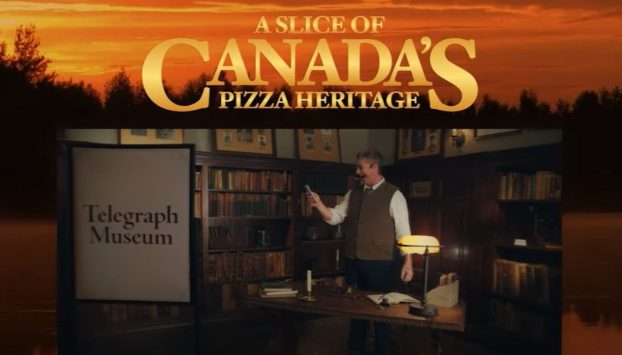One of the new in-your-face warnings on cigarette packages shows the long ash of a burnt cigarette curling downwards, accompanied by the warning, Tobacco Use Can Make You Impotent. The tobacco industry knows the feeling – its ability to market products has never been so limp.
With ever-increasing civic smoking bans and federal restrictions on tobacco advertising, the marketing options for tobacco companies are decidedly few and expensive. Then there are the stringent regulations concerning sponsorships (which will be completely banned by 2003), leaving direct marketing as the only remaining avenue.
‘We’re not going to give up as a company,’ says John McDonald of Toronto-based Rothmans, Benson & Hedges. However, the director of public affairs won’t say exactly what his company has in store, only that ‘anything that we do will be in compliance’ with the 1997 Tobacco Products Control Act.
Janet Hatfield, manager of corporate affairs of Toronto-based JTI-Macdonald, which makes Export ‘A’, Macdonalds, Vantage and distributes U.S. brands Winston, Camel and Salem, is also mum about her company’s Plan B, citing ‘competitive issues.’
However, with a 68% market share, Montreal-based Imperial Tobacco, Canada’s largest tobacco manufacturer, is less concerned about divulging its plans. Indeed, the maker of duMaurier and Players has already begun to improvise.
A few weeks ago it unfurled a tent in downtown Toronto to form an outdoor smoking lounge as a pleasant alternative for beleaguered smokers who stand in doorways during breaks. Located at the Toronto-Dominion Centre, the 40- by 40-foot haven is complete with carpeting, comfortable chairs, TV sets, music, newspapers and free coffee. It is open weekdays until May 25.
While the lounge coincides with the launch of their new brand – Matinee Ultra Milds – it’s also a chance to build Imperial’s database. Smokers are invited to submit their name, age, address and authorization to include them in Imperial’s databank, for a chance to win sessions at a luxury spa or a $5,000 cash prize.
The lounge earned instant success, attracting more than 1,200 people in the first two days, and that’s without any advertising. Imperial considered pamphlet distribution to the TD Centre towers but did not want to chance contravening the Act which featuressome vague yet far-reaching restrictions that vex the industry.
There is also no commercialization of the lounge itself – no banner or logo. A kiosk selling cigarettes is located near the tent, not inside. The tent is really just a canopy (with carpeting, etc.), because if it had walls, it would then come under Toronto’s smoking by-law that reserves 75% of the space for non-smokers.
To further feed the database, tactical teams roam the streets of Vancouver and Toronto in search of smokers about to light up. They are offered a light, breath mints and a chance to win the $5,000 draw by entering the databank.
Imperial’s recent partnership with Iceberg Media.com is another communications and database experiment. The Internet company will stream audio from sponsored concerts, like Toronto’s Downtown Jazz Festival (still sponsored by duMaurier) making music available to people on the Internet. While broadcasting has been off limits since the original Tobacco Act of 1988, netcasting is not prohibited under the revised 1997 act.
Nonetheless, Neil Blanche, Imperial’s director of marketing and communications, says his company is treating the Net as it would publications, which must have 85% adult readership. The challenge of the Internet is to ensure respondents to questionnaires are older than 18.
‘As the Internet develops down the road, there will be tools to guard your site,’ says Blanche. ‘In the meantime, we’re monitoring them as best we can. We’re trying to be responsible.’
Imperial plans to use this gold bank of names to facilitate market research, to disseminate news of upcoming sponsored events and to send out custom-published products. So far, Imperial has published one issue each of three glossy lifestyle magazines: Real Edge (now changed to REV), skewed to the young adult male; Pursuit, for both sexes aged 20 to 45 interested in the arts; and Art of Simple Living, geared to the same age group with a feminine slant.
Subsection 22 allows informational and brand-preference advertising in adult publications or those publications addressed specifically to an adult by name. Hence the push for a database.
Imperial does not feature product advertising in these magazines, but it does run sponsorship ads or ‘stealth ads,’ as they are called by Garfield Mahood, executive director of the Non-Smokers Rights Association. The ads highlight sponsored charities such as duMaurier Arts or the Matinee Fashion Foundation.
While product advertising is technically allowed, in practice these advertisements can not depict a tobacco product or its package or any brand element (i.e. logo). However, sponsorship ads can feature a logo. Of course, youth-oriented and lifestyle advertising – the latter described as anything that evokes an emotion – are out. As a result, none of the three major tobacco companies has done product advertising in publications.
‘We haven’t been able to design an ad yet to meet all their criteria,’ says Imperial’s Descoteaux.
‘The very name of our company was banned,’ RBH’s McDonald says incredulously, recalling a corporate sponsorship in which his company’s name was nixed because it contained two tobacco brand elements, ‘Rothmans’ and ‘Benson & Hedges.’
Blanche takes issue with the open-ended lifestyle restriction: ‘No matter what you do, it’s going to evoke an emotion… and who’s going to be the emotion police?’
The courts, that’s who, says McDonald. He describes the possible $300,000 fine and two-year jail term for transgressions as ‘extremely punitive and expensive.’ It keeps tobacco companies from even trying ads and pushing the envelope to determine what’s acceptable.
However, Denis Choiniere, acting director, regulations and compliance office of Health Canada’s tobacco control program, says he has noted a couple of cigar importers who have advertised successfully within the regulations. Furthermore, while the Tobacco Act did not prescribe a pre-clearance mechanism for ads, Choiniere says his branch would review an ad to provide ‘guidance’ if requested.
Feeling boxed in, the tobacco industry is embarking upon perhaps its most important strategy yet – constitutionally challenging the Act. The case goes before the Quebec Superior Court this fall, and it’s expected to go all the way to the Supreme Court of Canada. ‘We should have the right to communicate with our customers [adult smokers],’ says McDonald, citing a principle upheld by the Supreme Court in 1995. It struck down the original Tobacco Act because, among other things, it totally banned advertising.
But Mahood suggests it’s in the interest of the tobacco industry to claim it can’t advertise. They aren’t pushing the envelope so that they can bolster their case in court, he says.























